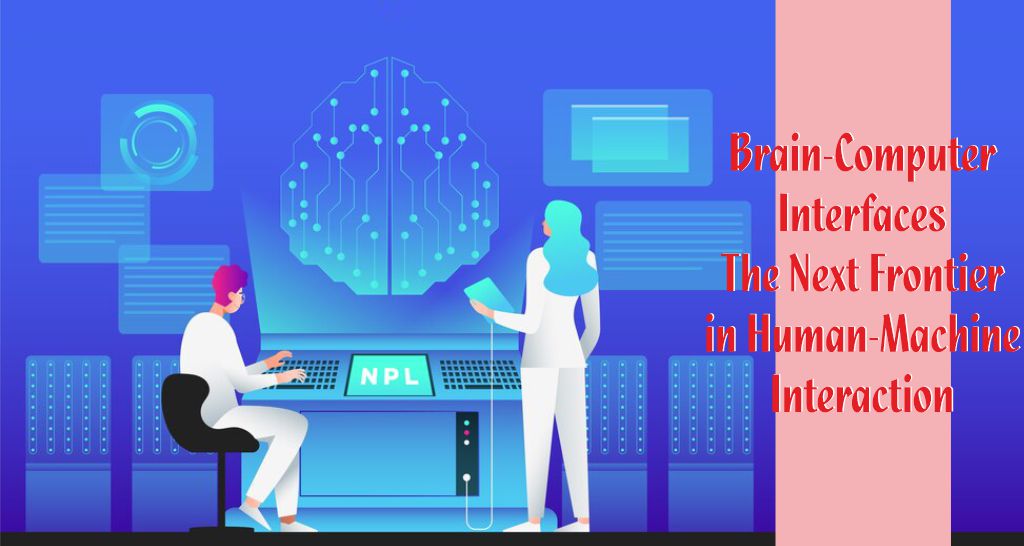Picture yourself effortlessly operating a computer using only your mind, effortlessly manipulating a prosthetic limb with your thoughts, or effortlessly engaging in telepathic communication. Imagine a world where our interactions with the world around us are completely transformed. This is the exciting potential of brain-computer interfaces (BCIs), a groundbreaking technology that holds immense promise.
What are BCIs?
BCIs are innovative systems that enable seamless communication between the brain and external devices. They enable us to control machines or environments directly through brain activity, bypassing the usual channels of motor and sensory neurons. There are several ways to accomplish this:
- Electroencephalography (EEG) is a method that detects and records electrical signals produced by the brain. This is done by placing electrodes on the scalp.
- Magnetoencephalography (MEG) is a technique that captures the magnetic fields generated by brain activity, providing a more detailed view of brain function compared to EEG.
- Electrocorticography (ECoG) involves the use of implanted electrodes placed directly on the surface of the brain, allowing for exact signal acquisition.
BCIs’ Potential
BCIs have a wide range of potential applications that are diverse and extensive, covering:
Healthcare:
- Revolutionary technologies that empower individuals with paralysis or neurological disorders to regain mobility and communication.
- Neuroprosthetics: Harnessing the power of the mind to control artificial limbs and sensory organs.
- Treating conditions such as stroke, Parkinson’s disease, and epilepsy through brain-based rehabilitation.
Education and Entertainment:
- A perfect blend for effective learning. Experience cutting-edge virtual reality controlled by your brain activity.
- Experience a whole new level of interaction and engagement in video games with brain-controlled gaming.
- Simplifying the way we connect and engage with others:
Effortless communication:
- Exchanging thoughts and emotions seamlessly, bypassing the need for words or physical gestures.
- Facilitating the direct transfer of knowledge and experiences between individuals through collaborative brain-to-brain interfaces.
Exploring the Complexities of Challenges and Ethical Considerations
Although BCIs hold immense potential, there are still considerable challenges that need to be addressed:
- Technological limitations: Current brain-computer interfaces (BCIs) face certain technological limitations, such as accuracy, precision, and real-time responsiveness.
- Brain signal interpretation: Understanding the brain’s language is a challenging task for scientists.
- Concerns about safety and security: Implanted BCIs have raised questions regarding potential risks and vulnerabilities.
- Ethical dilemmas: Exploring ethical dilemmas requires thoughtful examination of essential factors such as privacy, agency, and the potential for discrimination.
Exciting Developments in Neurotechnology:
BCIs have become a significant focus of scientific and technological innovation thanks to recent advancements in neurotechnology. Advancements in technology have greatly improved the performance of BCI systems, making them more accurate and faster. This is thanks to miniaturized sensors, better signal processing algorithms, and the integration of AI. These advancements have not only made BCIs more user-friendly but have also opened up exciting possibilities for new applications and pushed the limits of human-machine interaction.
Global Cooperation and Standardisation:
With the advancement of BCIs, it is becoming more and more evident that international collaboration and standardization are crucial. It is essential to have standardized protocols, ethical guidelines, and safety standards in place to promote the responsible development and deployment of BCIs on a global scale. By fostering collaboration among researchers, industry stakeholders, and regulatory bodies, we can tackle challenges and establish a framework that strikes a harmonious balance between innovation and ethical considerations.
The Way Forward
Research and development in BCI technology are making significant progress despite the challenges. Recent developments in artificial intelligence, machine learning, and materials science are making interfaces more advanced and easier to use. In addition, it is essential to have ongoing discussions about ethical frameworks and regulations to ensure that this transformative technology is developed and deployed responsibly.
Exploring the Ethical Implications and Safeguards:
With the rapid advancement of BCIs, ethical considerations are becoming more and more critical. There are essential considerations surrounding the access and interpretation of thoughts, such as privacy, consent, and the potential for misuse of personal information. It is crucial to have strong ethical guidelines and legal frameworks in place to protect individuals from unauthorized access to their neural data. Finding the right balance between technological progress and safeguarding individual rights will continue to be a challenge as BCIs become more common in our society.
The lasting effects on human cognition:
BCIs have the potential to enhance cognitive abilities significantly, but there are important ethical considerations regarding their long-term effects on human cognition and identity. As people explore the possibilities of enhancing their cognitive abilities through BCIs, it raises intriguing questions about how it could potentially impact personality, memory, and our understanding of humanity. We need to have open and thoughtful discussions about the ethical implications of using BCIs to enhance our cognitive abilities.
Exploring Regulatory Frameworks and Oversight:
In order to tackle the ethical and societal challenges linked to BCIs, it is crucial to establish strong regulatory frameworks and oversight mechanisms. It is crucial for governments and international bodies to work together in order to create clear guidelines for the responsible development, deployment, and use of BCIs. We must constantly monitor and adapt regulations to keep up with the ever-changing field of neurotechnology and to prioritize ethical considerations.
Spreading knowledge and raising awareness:
Public education and awareness campaigns play a vital role in promoting acceptance and understanding. By simplifying the concept of BCIs, highlighting their intriguing advantages, and dispelling misconceptions, we can lay the groundwork for a well-informed and supportive society. By involving the public in conversations about the ethical implications of BCIs, we can ensure that the technology is in line with societal values and ethical norms.
Conclusion
Brain-computer interfaces have the power to completely transform the way we interact with machines, opening up exciting possibilities for various areas of our lives. Although there are still obstacles to overcome, ongoing research and ethical discussions hold the potential for a future where our thoughts become the ultimate means of interaction, control, and even communication. It’s essential to keep in mind that BCIs should be used to enhance our humanity rather than replace it as we venture into this new frontier. Embracing the potential of this technology responsibly can lead us to a future where our minds and machines work together to create a more inclusive and enriching world for all.












Welcome To Biz Times Now
Welcome to Biz Times Now, the leading business magazine dedicated to providing invaluable insights and strategic guidance to top-level executives and managing personnel.